SPECIAL REPORT: Four Critical Issues Defining Ecuador’s Presidential Runoff
Ecuadorians head to the polls today. Here's what we've learned reporting from the ground.
Today, Ecuador elects its next president in a tight race between incumbent Daniel Noboa and leftist challenger Luisa González.
Noboa, who leads the neoliberal National Democratic Action (ADN) party, oversaw acute militarization and a litany of human rights scandals over the last year. González heads the Citizens' Revolution (RC) – commonly known as “correísmo” – a populist political movement whose long-time leader, former president Rafael Correa, fled the country amidst an outstanding arrest warrant for bribery charges.
They’re running against a backdrop of a sky-high homicide rate, a flagging “war” on gangs, dismal economic indicators, and an energy crisis, including blackouts that ground the country to a halt at the end of last year.
Over the past months, OffMap Media has interviewed dozens of political analysts, party representatives, voters, and election observers. Throughout these conversations, four important takeaways emerged:
1. Two candidates, no concrete plans
In April, Noboa and Gonzalez presented the final policy platforms to Ecuador’s electoral body. However, these plans largely lacked concrete details or financial mechanisms, continuing a pattern of hollow promises characterizing a campaign heavy on one-liners and light on policy to address the country’s urgent, overlapping crises.
In February, we reported that most voters see security and economic growth as the most important issue. Polls reflect this.
Ecuador is living through an unprecedented security crisis, fueled by gang-related violence. In January 2024, Noboa declared war on the gangs, militarizing the streets, the prisons, and the political discourse.
Initially, these hard-line policies appeared effective as homicide rates declined. However, as we previously reported:
Cases of extortion and kidnapping continued to rise unabated, and the modest security gains eventually evaporated as criminal organizations adapted. The national murder rate remained well above pre-pandemic levels, with January 2024 becoming Ecuador's most violent January on record.
The country faces multiple additional crises.
Since 2017, Ecuador has had the worst-performing economy in South America, according to a 2023 CEPR study, which found that poverty and inequality reached their highest levels in more than a decade even before the COVID pandemic pummeled the nation.
In 2024, unseasonable dry spells and a decade of infrastructural neglect collided, throwing the country into literal and metaphorical darkness with rolling blackouts that lasted up to 14 hours a day. Noboa’s administration has been caught unprepared and was slow to respond. Many small and medium-sized businesses shut down, further depressing an already reeling economy.
Despite these urgent challenges, neither Gonzáles nor Noboa has offered any concrete, financially viable solutions.
“Neither candidate has presented [concrete plans]. Not in the debates, not in interviews, not in meetings with stakeholders or academics,” Melania Carrión, an Ecuadorian security consultant and former government official, told OffMap Media. “No one knows how they’re going to pay for any of it.”
Both candidates spent their two presidential debates discrediting each other rather than explaining their policy proposals.
"I expected a candidate who could lead," Quito street vendor, Jaqueline Sanchez, told OffMap Media in February. "But none of them could explain their plan for the country. They just threw cheap shots at each other."
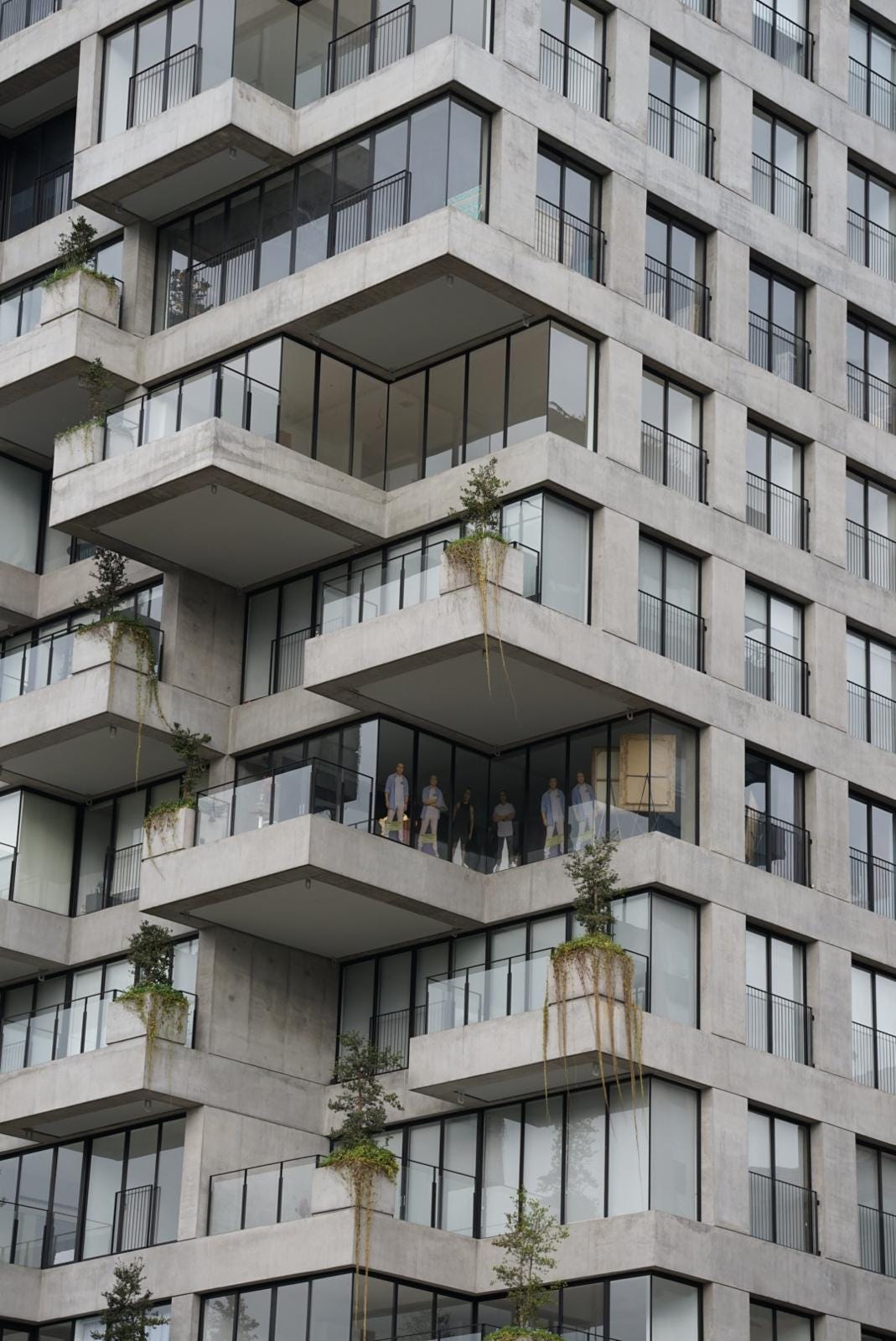
2. A disillusioned electorate
Sanchez is not alone in her disappointment. Voter fatigue runs deep and many Ecuadorians told OffMap Media they are choosing between two evils.
Many admitted they wouldn't participate if voting weren't mandatory.
"No, I'm not excited to vote. We've gone to the polls more than five times in four years," an economist from the energy sector told us in February. He requested anonymity fearing professional repercussions.
Among those who were eager to vote, almost all felt strongly about voting against one candidate rather than about supporting the other.
Noboa, though a relative political newcomer, represents a business and political dynasty. His father, Álvaro Noboa, is Ecuador's richest man and five-time failed presidential candidate himself.
Recently, Daniel Noboa has had to defend the family empire – Noboa Trading – against accusations of complicity in drug trafficking after police seized multiple cocaine shipments totaling about 700 kilogram from the company’s containers. This is on top of criticisms that during his 18-month term, the sitting president has failed to deliver substantial security or economic improvements, undermined constitutional norms, and overseen human rights violations.
Those supporting Noboa frequently told OffMap Media that their vote was primarily against "correísmo" – the political movement founded by Rafael Correa, who ruled from 2007 to 2017. Though González has tried to distance herself from her former mentor, many voters view them as inseparable.
Across much of Ecuador, Correa's name remains associated with authoritarianism and corruption. A persistent fear among Noboa supporters is that a González victory would enable Correa's return from self-imposed Belgian exile to govern from behind the scenes.
3. From key voting bloc to disintegrating movement
The choice between Noboa and Gonzalez is so polarizing that it has managed to split Ecuador’s biggest undecided voting block in this election – the Indigenous movement, meaning that today’s election could still be anyone’s game, despite the endorsement of the highest Indigenous leader in the country.
Leonidas Iza, candidate for Indigenous party Pachakutik (PK) came in third in the first electoral round, miles ahead of any of the other candidates. His five percent – approximately 536,000 votes – could have made him a kingmaker in this second round.
But his attempts to build consensus around the leftist candidate, Gonzalez, failed. In the weeks leading up to the runoff, cracks within the Indigenous movement first became visible then overwhelming.
On March 30, PK endorsed Gonzalez. But it's unclear how much that endorsement will matter at the polls.
Even before the full endorsement, Indigenous leaders on the regional, local, and grassroots levels publicly bickered about the decision, exchanging accusations of betrayal in the process. Some leaders even co-opted the PK flag to publicly support Noboa.
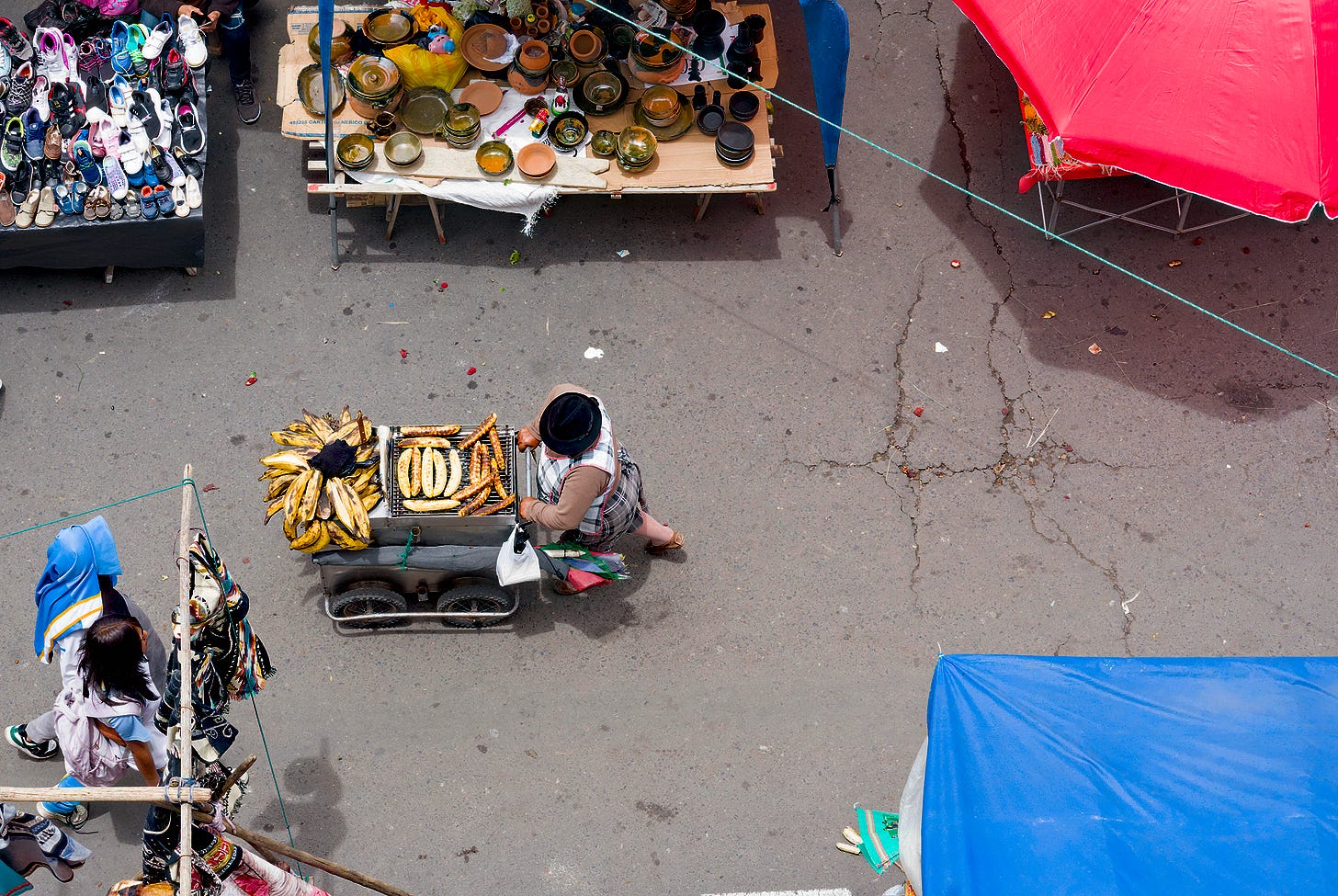
For a play-by-play of the situation and an analysis of what it means for the Indigenous movement, read our latest for Al Jazeera here.
4. A democratic process under attack?
Even in the first round of elections in February, some voters expressed their concern that Noboa’s anti-constitutional tendencies could turn into a refusal to give up power.
“We hope that they respect the people’s choice … whoever wins,” Ricardo Almagro and Daisy Cordero, a Quito couple who both work in security, told OffMap Media. “But this administration hasn’t respected the laws.The vice-president was supposed to take over, but they didn’t let her.The couple referenced Noboa’s highly controversial decision not to take a temporary leave of absence while campaigning for re-election. Ecuador’s constitution dictates that a sitting president running for re-election must take such leave and cede power to their vice-president during the campaign period. But, amidst legal challenges and condemnation from experts, officials, and civil society, Noboa refused to do so.
The refusal was one of a series of constitutionally dubious decisions made by the president, including trying to remove vice-president Verónica Abad from office (twice), signing an IMF loan without the approval of the legislature, and declaring a state of internal armed conflict against the country’s gangs.
After the first round of elections on February 9, Noboa cast doubt on the legitimacy of the results after coming in unexpectedly close to Gonzalez – claims contradicted by international election observers. Then, on the eve of the runoff, Noboa passed a decree declaring a state of exception in 7 provinces – all of them ones where Luisa Gonzalez won the first round.
Analysts who spoke to OffMap Media expressed grave concern that the decree could be a step towards impeding the peaceful transfer of power.
“His statements have raised questions about whether he would accept a loss in the second round,” Mark Weisbrot, Co-Director at the Center for Economic and Policy Research (CEPR) told OffMap Media. “The latest emergency decree allows for further restriction of people’s civil rights and liberties in the event of a disputed election; it is another sign of the probability of bad faith if he were to lose.”
Ecuadorian analysts echoed these concerns.
“We’re worried that whether he wins or loses, Noboa won’t accept defeat,” Carrión said. “We believe that the state of emergency shows the national government’s desperation. We are worried about what will happen on [election day].




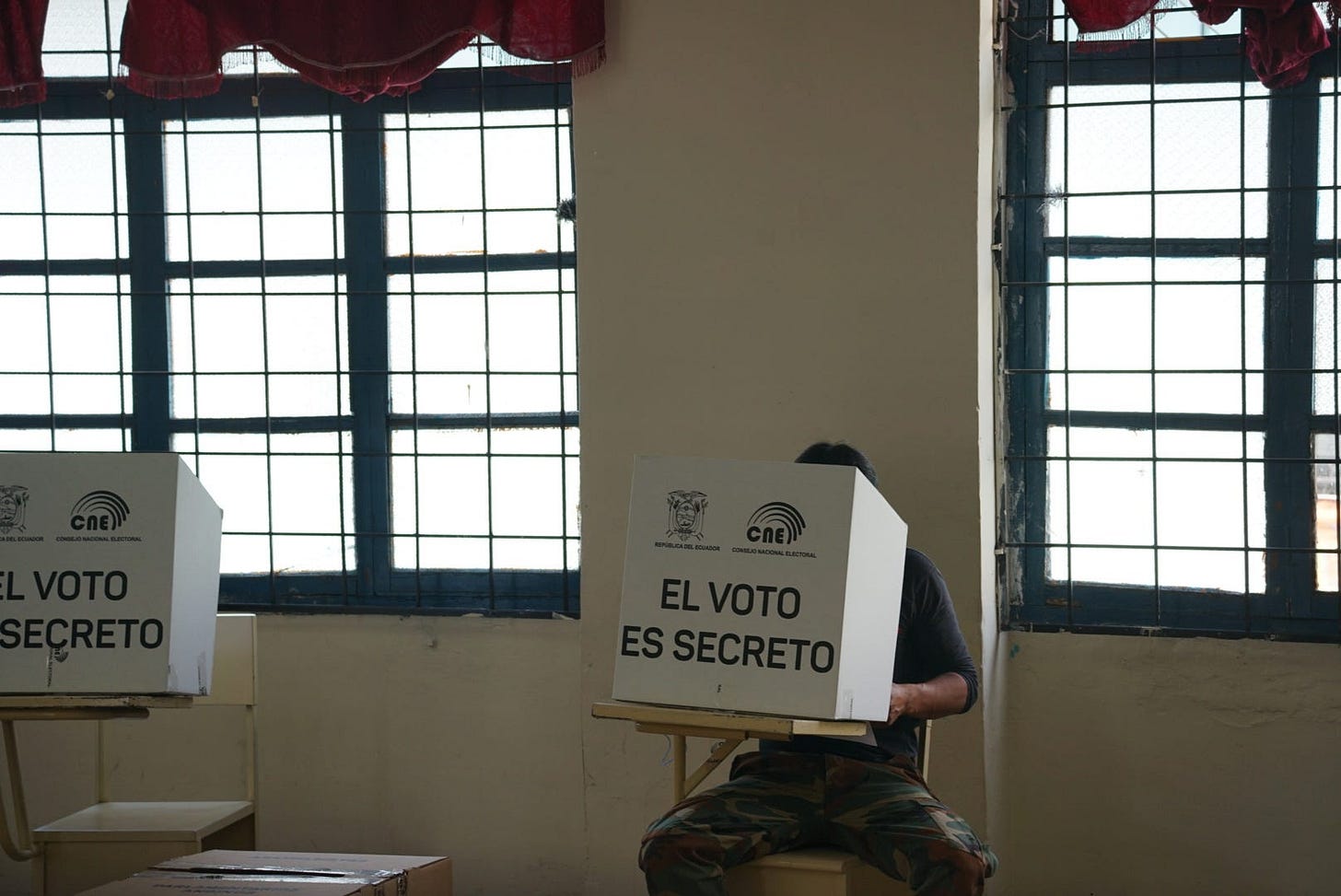
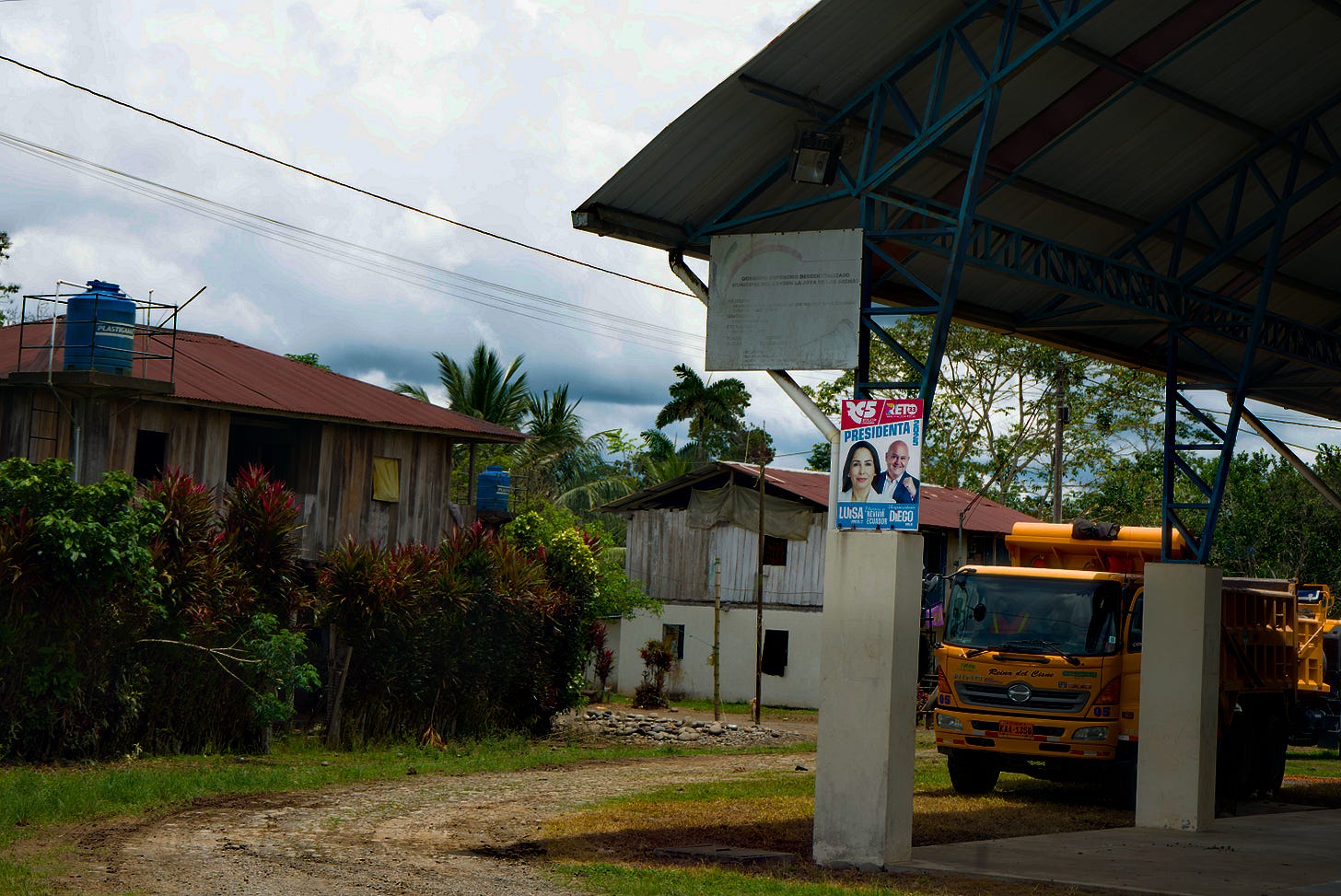
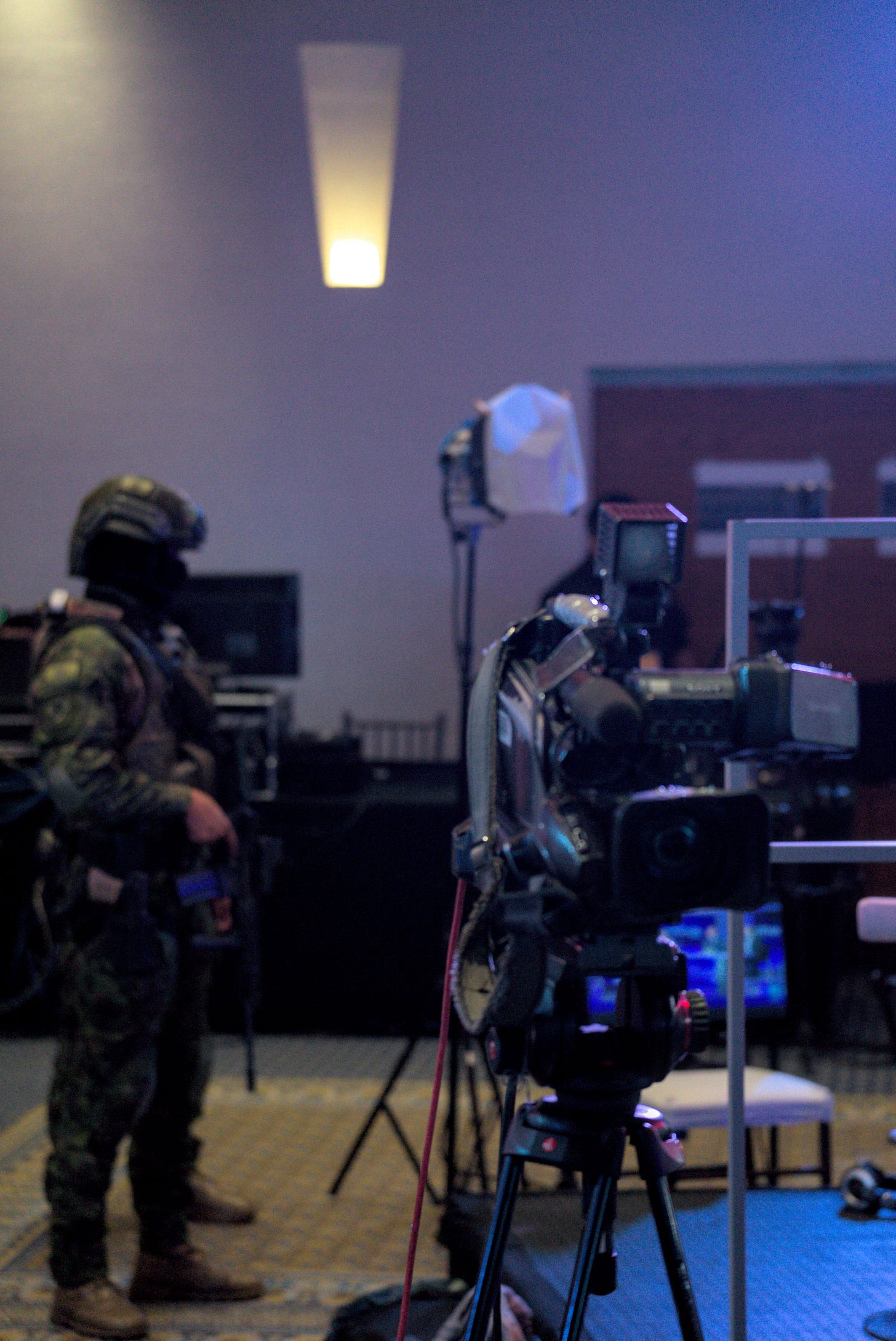
What will happen....? Thanks for the inside information! 🤔